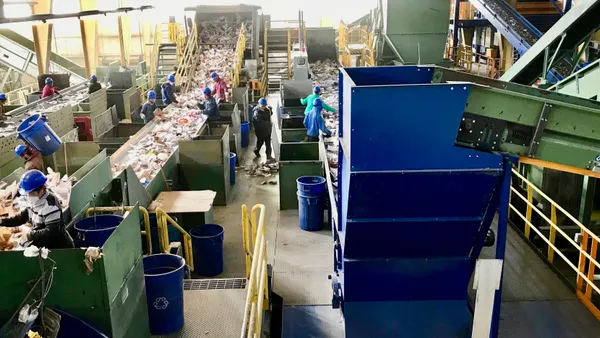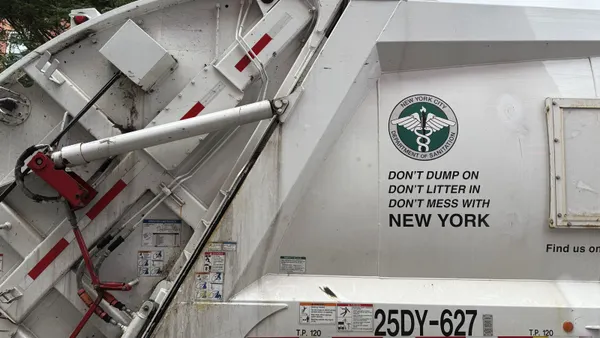Dive Brief:
- Nearly two years after the Solid Waste Association of North America (SWANA) and the California Resource Recovery Association (CRRA) announced a partnership to develop and offer a zero waste certification course, development has been completed and the course is now available, according to a press release.
- The course offers an overview of principles and practices in 10 modules including managing organics; financing and funding; contracting and partnerships; collections options and processing technology options.
- The course is intended to benefit entry and mid-level industry professionals, policy makers and sustainability advocates who wish to implement a zero waste plan in an existing solid waste program.
Dive Insight:
Municipalities nationwide have been declaring zero waste goals for years — many of which are slated to be reached by 2020 or 2030 — yet there had never before been guidelines on how to approach this goal, or what "zero waste" even entails. Some cities like Washington hope to reach a "zero waste" goal of 80% diversion, while other cities like San Francisco have dabbled with the possibility of reaching at true 100% diversion rate. Yet there is a lot of skepticism around how long that would take — or if it's truly achievable at all.
In a May interview with Waste Dive, Covanta CEO Stephen Jones said that zero waste is "an aggressive goal, but you know from a societal standpoint that's a good goal to have." And, while it may be aggressive, it's more likely to happen with room for trial and error. A statewide "zero waste" plan in Maryland was recently scrapped by Governor Larry Hogan due to "burdensome" policies that it entailed, yet it is likely that Hogan will still pursue many, if not all, the elements of a zero waste plan. It is possible that, as more cities approach "zero waste" checkpoints with unfavorable results, plans will be reworked to ensure municipalities maintain a proper focus on sustainability.
The intent of SWANA and CRRA's zero waste course is to rethink existing programs, which means there is not a silver bullet solution to reaching zero waste. Yet, with the proper guidance, each participating municipality will likely reach their individual goals more efficiently and successfully.









